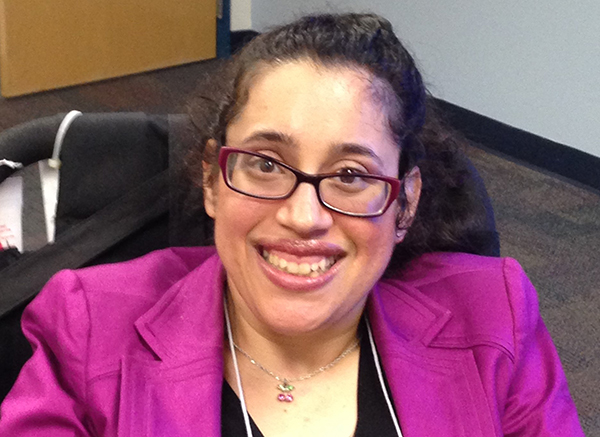
ave you ever wanted to write about a marginalized perspective outside of your own lived experience? If so, then you may consider hiring a sensitivity reader to help you craft that perspective in your work.
As a marginalized person or someone with a certain area of expertise, have you ever wanted to help screenwriters and authors with their manuscripts or screenplays? Then sensitivity reading may be the perfect freelance job for you.
I want to share with you about the process of sensitivity reading and what it takes to become a sensitivity reader as well as how to find job opportunities and build your freelance career.
What is Sensitivity Reading?
Sensitivity reading, also known as authenticity reading, is a type of editorial work that authors and screenwriters may find useful when writing outside the lens of their own experience. If you are seeking to approach writing characters in a respectful and authentic manner, but they are outside of your lived experience, then hiring a sensitivity reader would be a crucial stepping-stone in your writing process.
Sensitivity readers may read the entire unpublished manuscript or may only read certain sections, scenes, or for certain characters, depending on the need with the intention of highlighting inaccuracies in regard to culture, marginalized representation, stereotypes in language, or bias. A sensitivity reader may read from the lens of their own lived experience, but, in addition, they also may have an academic background where they have learned about the intricacies of harmful representation, and what to write instead.
Sensitivity reads will often include in-line comments in the manuscript, pointing out inaccuracies and areas where certain representation, bias, or stereotypes need to be fixed. It also may include a reader’s report where the sensitivity reader points out inaccuracies in greater detail and cites specific examples. Some publishing houses may request that a sensitivity reader write up a reader’s report along with the in-line comments on an author’s manuscript.
How I Got Started
I found out about sensitivity reading through another writer at the BinderCon LA writers’ conference in 2017. In 2016, I’d been on a panel of writers talking about being a disabled/chronically ill writer, and in 2017, I was teaching a workshop there on how to write disabled characters in TV, film, and YA fiction.
Before this, in undergrad, I had minored in disability studies and took classes, such as Literature and Disability and Disability Memoir. I then went on to pursue an MFA in screenwriting at California State University, Northridge. By Fall 2015, I began a PhD in education with an emphasis on disability studies and was enamored by disability representation in all forms of media, particularly TV, film, and genre fiction. Between 2015 and 2017, I had the opportunity to be on several panels about disability representation in media, and this would continue for several more years.
When someone at BinderCon told me about sensitivity reading in 2017, I was immediately intrigued. As a multiply marginalized disabled writer with years of lived experience as well as academic knowledge, this sounded like an incredible opportunity. From that point on, I asked other author friends I knew from conferences if they could keep me in mind for any sensitivity reading opportunities that may arise.
However, my first sensitivity reading job came from Twitter (now called X) in 2019. Someone had retweeted a post from an editor asking for a sensitivity reader who used a wheelchair. The project was for a middle grade contemporary novel and one of the supporting characters uses a power wheelchair. The editor had her DMs open, so I sent her a message and told her I was a wheelchair user and would love to read for that character. Although I read the whole book and assisted with things like ableist language throughout the text, I also paid specific attention to that character and her story arc. I read the novel, made in-line comments, and sent the editor a reader’s report with my notes.
She ended up referring me to someone she knew who had a client who needed help with a character in her adult science fiction novel, and that was how I got my first two jobs as a sensitivity reader.
The rest of my jobs have come from word of mouth (through other author friends online) or through an authenticity reader database with Penguin Random House. Sometimes, I have put my name on various freelancing websites or the Disability in Publishing website.
Although I primarily read for disability representation in a variety of areas, I do read for other marginalized identities and academic subjects as well.
I have read a variety of manuscripts across middle grade, young adult, and adult categories, both fiction and non-fiction, in almost every genre. Due to my background in screenwriting, I can also do sensitivity reading for screenplays, TV pilots, graphic novel manuscripts, and audio drama podcast scripts. I do not feel comfortable evaluating picture books or chapter books, but every sensitivity reader has different areas of expertise.
If you are a marginalized writer, know that your perspective is valid.
Landing Your First Opportunity
Landing your first opportunity as a sensitivity reader may be difficult. It took me two years until I got my first opportunity.
Never underestimate the power of networking. However, this does not necessarily have to be in person. It could come through connections with other organizations or writers online.
Getting your first sensitivity reading job will probably be slightly easier if you are already a writer and have an established connection of writer friends or a support system to lean on, especially if you are a marginalized writer. Even so, it can take time.
If you are a marginalized writer, know that your perspective is valid.
Should you wish to become a sensitivity or authenticity reader and help people craft respectful portrayals of marginalized characters, start by asking your writer friends if they know anyone who needs a sensitivity reader and share a little bit about your area of expertise. You can also advertise services on your website or blog and drive traffic to those service listings.
You may also advertise your services on popular websites, like Fiverr or Upwork.
Some publishing houses have an authenticity reader database, such as the one by Penguin Random House (which is not open at this time).
Once you have completed a job or two or you know this type of work is right for you, there are a few databases/directories that you can check out and submit your name for listing to get started or even do a Google search to find one that fits you. A few to start with are:
Getting started can be the hardest part, but there's a real need for good sensitivity readers in the current marketplace. I've found once you secure a job and do it well, more work will follow.

“Sensitivity reading also often includes emotional labor on behalf of the person evaluating your manuscript, such as if the character is a victim of sexual assault, domestic violence, or abuse, so it’s important that readers are paid fairly.”
Rates/Pricing
A sensitivity read is a paid job. Someone is being paid for their area of knowledge or expertise.
The rates of a sensitivity reader may vary depending upon what they are being asked to evaluate.
When working with small or large publishing houses, often the price for a sensitivity read is set by the publishers. Sometimes a sensitivity reader can negotiate with the publisher for a certain rate. When sensitivity readers are working for individual authors, they may set their own rates.
Sensitivity readers are also often given deadlines for when the manuscript must be submitted back to the editor or author.
Rates may be as low as $300 or as high as $1000-$1200, depending on the length and type of manuscript.
If you are a marginalized person taking on a sensitivity reading job, it’s helpful to negotiate for the highest rate possible, for your area of invaluable expertise. You are bringing great value to the book and helping to create the best possible story with your lived experiences and expertise.
Sensitivity reading also often includes emotional labor on behalf of the person evaluating your manuscript, such as if the character is a victim of sexual assault, domestic violence, or abuse, so it’s important that readers are paid fairly.
In conclusion, if you are thinking about becoming a sensitivity reader, don’t be afraid to ask for what you’re worth. It can be a very rewarding job, but also an extremely emotionally taxing one depending on what you are reading in the manuscript.
***

Lara Ameen is a screenwriter, novelist, short fiction writer, sensitivity/authenticity reader, and holds a PhD in education with a disability studies emphasis from Chapman University. She received an MFA in screenwriting from California State University, Northridge. Her YA contemporary fantasy novel, SPAER, was awarded a disabled writers’ grant from Suffering the Silence, longlisted in Voyage YA's First Chapters Contest, and their Book Pitch Contest. A 2022 Lambda Literary Screenwriting Fellow, 2022 Mentorship Matters TV Writing Program Finalist, and a 2022 NBC Launch TV Writing Program Finalist, she was a 2023 Screenwriting Mentee as part of 1in4 Coalition’s mentorship program for disabled screenwriters. She is a 2021 alum of the Tin House YA Workshop, and 2021 and 2024 alum of the Futurescapes Writers' Workshop. Her short fiction has been published in Prismatica Magazine, Disabled Voices Anthology, Flash Fiction Magazine, Drunk Monkeys, just femme & dandy, Hairstreak Butterfly Review, and elsewhere. She made her traditional publishing debut as a contributor to the 2024 Lambda Literary finalist young adult multi-genre anthology, Being Ace, published by Page Street YA.